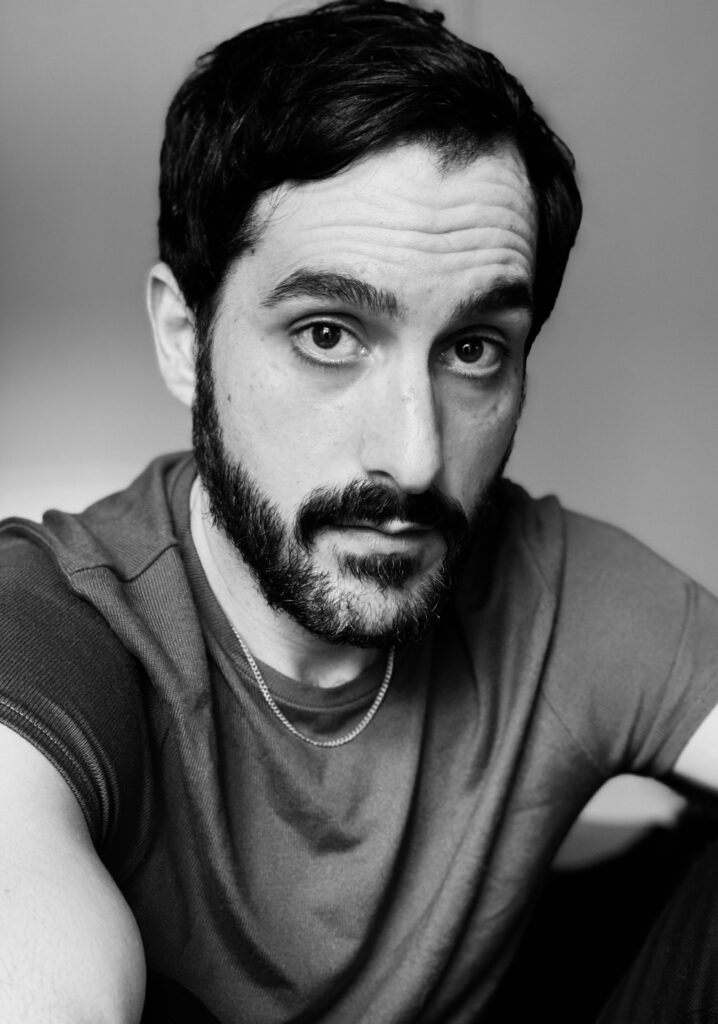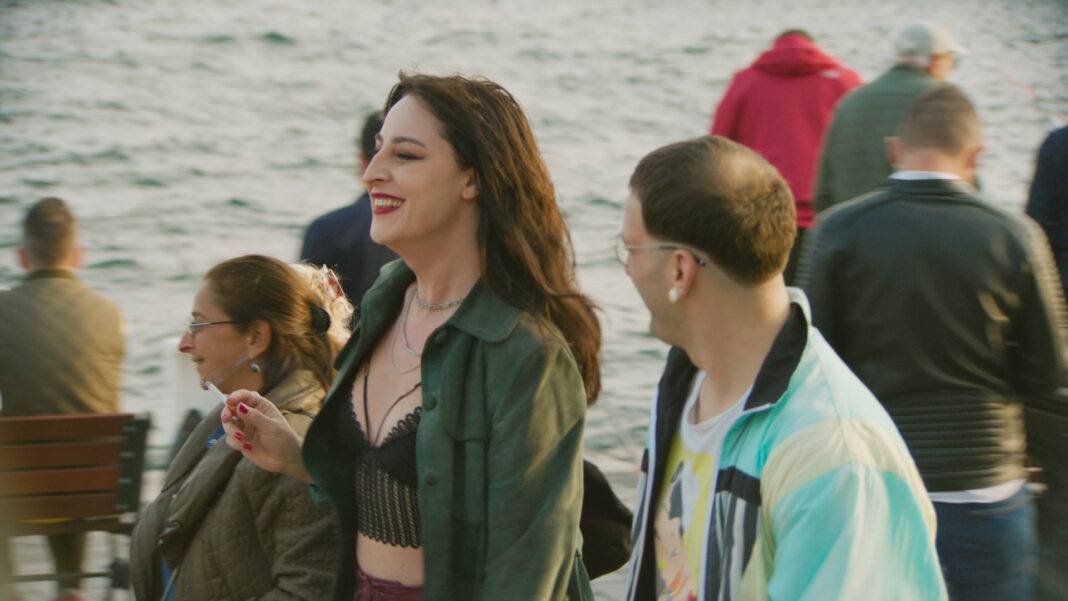Levan Akin’s breakout film, 2019’s And Then We Danced, told the story of a tumultuous gay love affair among members of the National Georgian Ensemble dance company. The crowd-pleasing drama, set in the Georgian capital of Tbilisi, won him much acclaim, but Akin did not rest on his laurels. Since then, the openly gay Swedish-Georgian filmmaker has directed six episodes of the deliciously over-the-top gay vampire series Interview with the Vampire, as well as his latest film, Crossing, which arrives in cinemas on July 26 and on the streaming service MUBI on August 30.
Crossing is based on a true story Akin heard in Georgia, when he was researching And Then We Danced, about a grandmother who travelled from Georgia to Türkiye in search of her trans granddaughter. Though both countries are conservative by Western European standards, Türkiye’s capital, Istanbul, is seen as more cosmopolitan, and many Georgian trans people (and cis people, too) go there for a better life. In the film, retired schoolteacher Lia (Mzia Arabuli) leaves her home city of Batumi, Georgia, to carry out her recently deceased sister’s dying wish to find her lost trans daughter, Tekla. Lia brings along an unreliable young man, Achi (Lucas Kankava), who claims to have Tekla’s address in Istanbul.

The film works on several different levels. Though Lia and Achi are both from the same city and culture, they’re an odd intergenerational couple stuck together on a road trip that changes each of their lives in very different ways. The duo find themselves struggling to navigate Istanbul and its sizable trans community, including meeting activists from real-life community organizations, some of whom are essentially playing themselves. Akin also explores the tensions and parallels between Georgian culture, which is very influenced by being part of the Soviet Union until 1991, and Turkish culture. Though Akin was born in Sweden, his family comes from Batumi and growing up he spent summers with his grandparents in Istanbul, as well as Batumi and Tbilisi.
The line “Istanbul is a place where one can disappear” is an important one in the film, but Crossing also makes it clear that one can find oneself there. Pink Ticket Travel talked to Akin about the queer geography of Crossing.
The film starts in Batumi, Georgia, which is a city you don’t hear much about. How was it shooting there?
To me, it’s very special, very old. It used to be an important port city, so it has beautiful architecture, French Revival, Art Nouveau, styles like that. But in later years, they’ve built skyscrapers, casinos, which are not so exciting to me personally. The nature around the city is beautiful. If you go north, toward Guria, the landscape is fantastic, all the mountains. The Georgian people are very hospitable.
What is it about Istanbul that made you want to set a large part of Crossing there? What were you trying to capture about it? The city’s famous stray cats certainly have a part in the film.
First of all, I had heard that a lot of trans women from Georgia go to Istanbul to work. Istanbul is such a fantastic place in many ways. I’ve always been intrigued by the city, and I think it thematically ties in a lot with what the film explores—the differences in culture, tradition versus modernity. They say New York is the city that never sleeps, but I think Istanbul really is a city that never sleeps. It’s never quiet. There’s always music playing everywhere, which is something I wanted to capture in the film. Also, it’s always crowded, which was definitely a challenge, to make you authentically feel like you’re there. Because when you film, obviously you have to empty the streets and put in your extras. Something artificial happens then, I believe. So we worked hard to make it really feel like they’re there in Istanbul and that we’re just a fly on the wall. That helps the immersive feeling of the film. Logistically, it’s very, very difficult to film in Istanbul, getting the permits and rights; every neighbourhood has its own thing going on.
You depict Istanbul as having a very robust culture of trans women. There are characters involved in sex work, but you also capture their lives across various sectors of society, including law and activism. How much of that would be on display? How much of that is underground? What research did you have to do to capture it?
To me, one of the pleasures of making a film is the writing, the researching and meeting people. I love getting in to new places. I’m very curious. Many of the women who appear in the film are showing facets of their own lives, so it’s hybrid storytelling in that sense. Pink Life LGBTI+ Solidarity Association, the NGO we have in the film, is a real NGO. The rooms we see in the film, some of them are real spaces and some of them are recreated. But it’s very authentic. Trans women, not so much trans men, are a big part of Turkish society. One of their biggest diva singers since the 1980s, Bülent Ersoy, is a trans woman who is loved across the country. They don’t talk much about the trans aspect, but yeah, it’s a big part of Turkish society.
What do you see as some of the through lines between Turkish culture and Georgian culture? What differentiates them?
Definitely religion, because Georgia is Orthodox Christian and Türkiye is a Muslim country. But they have so much in common, more than either one of them would admit. Both are patriarchal societies. Temperament wise, there are similarities. But Türkiye is a country of so many diverse people because of the Ottoman Empire—there are Georgians, Armenians, everything, in Türkiye. Georgia is much more homogenous, and in many ways more traditional. Türkiye wasn’t under Soviet oppression. Maybe they have a different kind of oppression, depending on who you ask. They’re super capitalist. It’s almost like America there.
Taking into account [your 2011 film] Certain People, And Then We Danced, Interview with the Vampire and now Crossing, what are some of your constants as a filmmaker?
Having the outsider view and being an outsider. Culture clashes. In Certain People, there’s this bourgeois cultural-elite group of people and this trashy game show hostess who destroys their party, which I think is super fun and shows the prejudices that exist on both sides. You have similar themes in And Then We Danced and Crossing. With Interview with the Vampire, I was a big fan of the books when I was a kid, because they were these eternal beings that are never going to be part of any real life anymore, and there was also the queer aspect. It’s something I’m always drawn to.
This interview has been edited for length and clarity. The final question was asked by André Didyme-Dôme Fuentes from Rolling Stone en Español, @andredidymedome.


